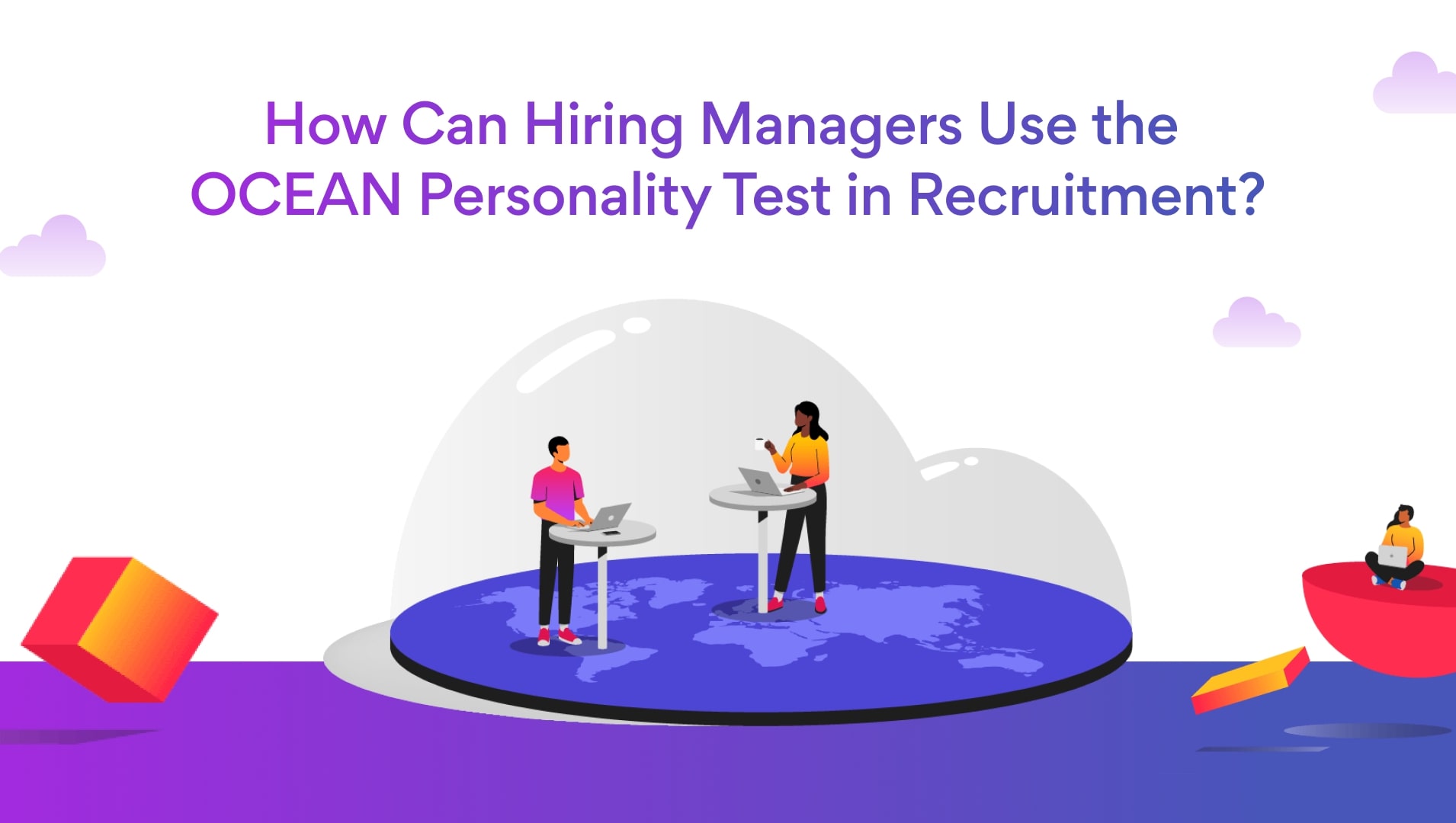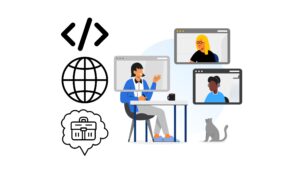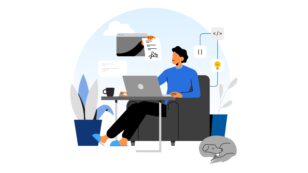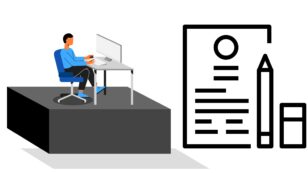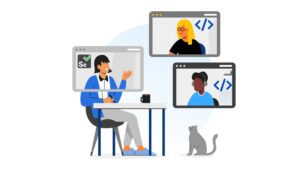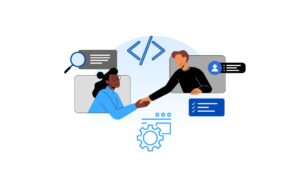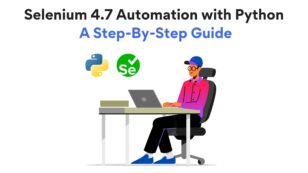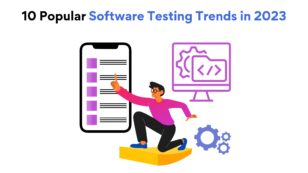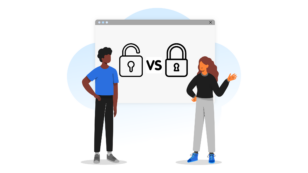How Can Hiring Managers Use the OCEAN Personality Test in Recruitment?
What is the OCEAN personality test? What are the five main personality traits associated with OCEAN? How can the OCEAN model help in hiring decisions? How are personality tests used in the job hiring process? And how can you use personality tests to hire?
Looking for answers to these questions? Keep reading!
Introduction
During the first few months of employment, hiring managers discover a lot of new traits about their employees. These details include whether they favor solo or group work, how they solve problems, how they handle workplace disputes, and more.
Imagine gaining these crucial insights about your new hires before their first day on the job or even before you read their résumé. Enter, the OCEAN personality test.
The OCEAN personality test assists hiring managers with interview questions during pre-employment personality evaluations.
The OCEAN theory of personality traits measures the personality of every person on one of five scales – Openness to Experience, Conscientiousness, Extraversion, Agreeableness, and Neuroticism. These traits are commonly abbreviated as OCEAN and are consistent throughout an employee’s career.
What is the OCEAN personality test?
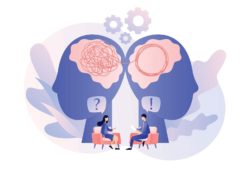
What is the OCEAN personality test?
The Big Five or OCEAN personality tests assess a candidate’s performance on five key dimensions of their personality. They are as follows:
OCEAN personality test trait 1: Openness
Openness demonstrates a candidate’s willingness to try new things. In other words, it assesses how much a person has a natural inclination toward new and adventurous activities.
A person with a high openness score tends to be more creative and is willing to examine abstract topics. On the other hand, someone with a low openness score may be more pragmatic and focused on one activity.
OCEAN personality test trait 2: Conscientiousness
Conscientiousness assesses an individual’s ability to be organized, disciplined, and dependable.
Those with high conscientiousness scores can organize their priorities readily and are more inclined to stick to a schedule throughout the day. A low conscientiousness score implies a high level of openness and risk-taking.
OCEAN personality test trait 3: Extroversion
Extroverts reflect the best energy when around other people.
People who score high on extrovert scores are lively, exuberant, chatty, and impulsive. Also, they are more emotionally expressive. Most extroverts excel as team players, benefiting from the exchange of ideas and energy provided by group work.
On the other hand, introverts thrive in low-key environments and tend to be quieter, calmer, and more meticulous in their job and personal lives. They are also reclusive, private, and thoughtful by nature. Introverts like to work alone and carefully consider an idea before sharing it with others.
OCEAN personality test trait 4: Agreeableness
Agreeableness is an essential indicator of how easily a person can get along with others. Those who score high in this area are more likely to exhibit pro-social traits like compassion, kindness, and affection, but they may also be naive and submissive.
Conversely, people who score lower in this personality trait are more competitive and argumentative, and hostile to others.
OCEAN personality test trait 5: Neuroticism
A high score on the neuroticism section of the test could indicate a person’s propensity for emotional vulnerability.
On the other hand, an individual with a low score is better suited to cope with tension and stress. These people require calmer situations with predictable levels of stress.
Unique personality patterns drive individual actions. Knowing these actions and the mental patterns that underpin them can give you a unique perspective on the workplace dynamics.
Related post: The Top Eight Automation Testing Trends to Lookout for in 2022
How does the OCEAN test work?
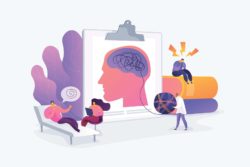
How does the OCEAN personality test work?
Test takers select from a list of words or sentences that affirm or deny one of the five characteristics. For each OCEAN trait, the test taker scores between one and five on a five-point Likert scale.
On the five-point Likert scale, one stands for highly inaccurate, whereas five stands for highly accurate.
Here are a few sample questions from OCEAN personality tests:
- I have a kind word for everyone.
- I am always prepared.
- I feel comfortable around people.
- I often feel blue.
- I believe in the importance of art.
These OCEAN personality tests may not consistently deliver the level of predictive accuracy that many hiring managers are looking for. However, psychologists widely accept the OCEAN theory as reliable and definite.
How are personality tests used in the job hiring process?
According to recent research, employees placed in positions that do not match their personality are more likely to be dissatisfied with their jobs. And using the OCEAN personality tests can provide insight into vital information about candidates, such as their personality, values, and work preferences.
Here are the two steps to implement OCEAN personality tests in the job hiring process:
Step 1: Pre-circulate the OCEAN questionnaire
Businesses are realizing that talent alone isn’t enough to make an employee a good fit for a company.
When using data that can be compared and considered, employers are more likely to make decisions that will benefit both individual and group achievement in terms of the office team and the employees themselves.
Mail the OCEAN personality test questionnaire to candidates via mail. Many websites also provide free OCEAN personality tests and analyses. Once through with the tests, ask the candidates to share their test reports online.
Build interview questions based on OCEAN personality test reports. For example, if a candidate scores low on openness, ask how they will engage with cross-functional teams.
Step 2: Nurture the talent
After the actual hiring process, the first few weeks are crucial for the new employees and the employers.
Use the OCEAN personality test report to recognize employee strengths and shortcomings, areas to celebrate, and regions that could use improvement.
For example, hiring managers can consider assigning creative and cross-functional assignments to nurture their inherent talent if an employee has a high openness score. Similarly, if they have a low openness score, hiring managers can initially assign low interaction jobs and gradually scale to jobs involving more interaction and cross-functional dependency.
How can OCEAN personality tests help in the work environment?

How can OCEAN personality tests help in the work environment?
OCEAN personality tests have many advantages. These tests can assist hiring managers in understanding their employees better. They can map out an employee’s job potential before their first day. Later, they can utilize the information to understand employees’ strengths and weaknesses better.
In addition, hiring managers can devise strategies to get the most output out of each employee by assigning roles and responsibilities they are best suited for. Last but not least, these tests can help managers bring in diversity in hiring.
So, how can you use personality tests to hire?
OCEAN is one of the most popular and extensively used personality test models globally.
Employers can better comprehend the specific dynamics of their workplace by developing stable and compassionate workplace culture and gaining a thorough awareness of employees’ social and emotional habits.
Career experts and psychologists often use this information in a personality career exam for applicant assessment and recruiting.
If you’re looking for talented professionals to work on your next project, Turing.com is an excellent place to start. Turing allows you to hire senior, pre-vetted remote developers with strong technical and communication skills at incomparable costs, all of whom are available to work in your timezone.
FAQs
- What is the OCEAN personality test? What is the Big 5 personality test?
The ocean personality test is based on the five-factor model that measures five pre-dominant personality traits: openness, conscientiousness, extroversion, agreeableness, and neuroticism. - What is a conscientiousness personality trait?
Conscientiousness defines a person’s tendency to think, feel, and respond in certain ways under certain circumstances. - What are the 5 main personality traits associated with OCEAN?
The five main personality traits associated with OCEAN are as follows:- Openness
- Conscientiousness
- Extraversion
- Agreeableness
- Neuroticism
Tell us the skills you need and we'll find the best developer for you in days, not weeks.
